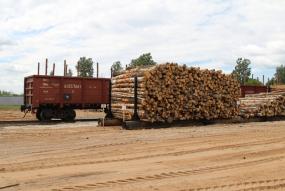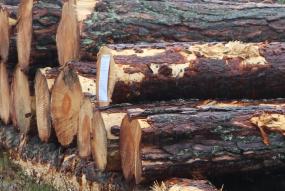
Compliance at all levels
FSC regards the compliance with legislation at international and national levels as the essential foundation on which to build a system of responsible forest management and the sourcing of timber.

How FSC certification can help companies meet Forest Law Enforcement, Governance, and Trade (FLEGT) and EUTR timber legality requirements.

Specific steps taken by FSC to ensure compliance with timber legality laws.
Timber legality legislation
Complying with timber legality legislation is an essential component of FSC certification. In fact, compliance with all applicable laws, regulations and nationally ratified international treaties, conventions and agreements is our first principle of responsible forest management.
All countries with forests have rules for forest ownership and management, and trade, but the level of enforcement of these rules varies across the globe.
For this reason, several governments have adopted ‘legislation for timber legality' since 2008. These are laws that ban the trading of timber that is harvested illegally anywhere on the planet. To prevent the purchase and sale of timber products connected to illegal harvesting, these governments require companies to apply due diligence.
FSC fully supports this timber legality legislation, which is currently in place in the USA, the EU, Australia and an increasing number of Asian countries. However, it is worth noting that both most legislations do not recognize voluntary certification as automatic evidence of compliance, see it as a tool to reduce risk only.
FSC has taken measures to ensure its forest management, chain of custody, and controlled wood standards meet the requirements of these laws. In this way, certification can make compliance a simple process. In the EU and Australia, FSC has improved government officials’ understanding of the value and reliability of FSC certification.